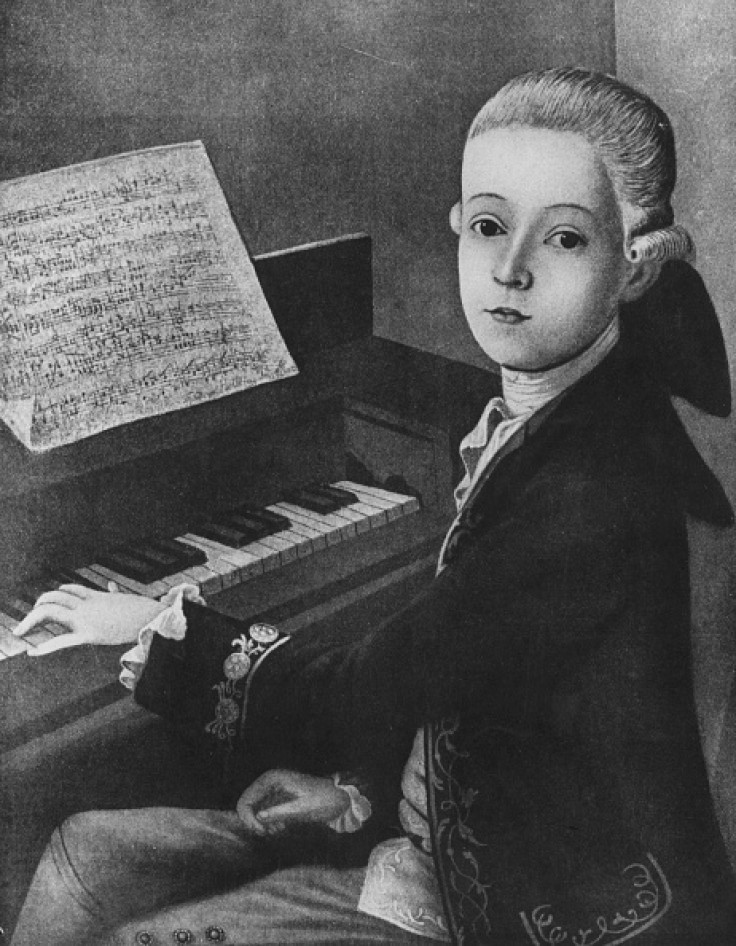
Today in Music History, July 16, goes a little bit further back as it marked the premiere of a Mozart opera Singspiel. This year will be the 238th anniversary since "Die Entführung aus dem Serail," was first performed.
Wolfgang Amadeus Mozart composed and first conducted his three-act opera. It was based on Christoph Friedrich Bretzner's "Belmont und Constanze, oder Die Entführung aus dem Serail." The story from the German libretto is about a hero rescuing his beloved. In this story, the hero is Belmonte, with his servant Pedrillo by his side. Together they travel to save Konstanze from the "seraglio." The term refers to a type of living quarters owned by Pasha Selim, an Ottoman official.
The opera was also known as "The Abduction from the Seraglio." The playwright and inspector Gottlieb Stephanie wrote the libretto. It premiered on July 16, 1782, at the historic Burgtheater. The venue is now the National Theater of Austria, situated in its capital Vienna.
The pinnacle of the National Singspiel... and "copyright issues"
Mozart had just arrived in Vienna the year before, in 1781. He managed to impress several people in the local arts scene. This included Stephanie and theater manager Count Franz Xaver Orsini-Rosenberg. Stephanie, who was the inspector for the National Singspiel, decided to support Mozart and find an opera for him to adapt.
The "Nationalsingspiel" was a pet project for the then Austrian emperor Joseph II. He created a theater company. It was tasked to create and perform opera works in the German language. It was a patriotic move to counter the Italian opera often performed in Vienna. While it was ultimately dismissed by 1783, it managed to create original German works. Mozart's "dem Serail" being chief among them.
However, Stephanie provided Mozart with the copy to Christoph Bretzner's "Belmont and Constanze," without the author's permission. Bretzner soon made a public complaint about it. He claimed that his work was stolen from him.
Reception and legacy of "The Abduction from the Seraglio"
It was a hit upon its release in the Burgtheater. Austrian music scholar Otto Deutsch's "Mozart: A Documentary Biography," wrote about this period in music history. In his book, the first two shows brought in a large pay. It was reportedly three times Mozart's salary when he was still in Salzburg, Germany.
While it propelled Mozart at the forefront of Vienna's theater, it did not make him rich. He was paid a flat fee for his opera and got no royalties from other shows of his work.
Johann Wolfgang Goethe, writer, statesman, and also a librettist, commented on Mozart. "All our endeavor... to confine ourselves to what is simple and limited was lost when Mozart appeared." Goethe said that "dem Serail conquered all." He further lamented that their own works have never received the same attention.
A popular anecdote regarding Mozart's complexity in "dem Serail" appeared in the 1798 Mozart biography written by Franz Xaver Niemetschek. Emperor Joseph II commissioned the work. It was said that he complained to the composer that "there are too many notes." Mozart promptly replied that there are "just as many notes as there should be."
To this day, "Die Entführung aus dem Serail" remains one of the landmark works in the Singspiel opera subgenre. Fiona Jane Schopf wrote on her "Music on Stage" that "dem Serail" remains a staple of operatic repertoires throughout music history. Schopf credits this timelessness to the Singspiel's "potential to spark controversy and move artists, audiences and critics alike to heated exchanges of pro/con arguments with regards to the opera."
Listen to a piece of music history with Mozart's "Die Entführung aus dem Serail," performed by the Stuttgart Chorus under maestro Gianluigi Gelmetti's baton from the 1991 Schwetzingen Festival:
For other notable dates in music history for the month of July, see the following dates:
July 8, 1996: Spice Girls released "Wannabe" in UK
July 10, 1965: Rolling Stones score their first US #1 single
July 12, 1979: "Lovin' You" singer Minnie Ripperton dies at 31
© 2025 MusicTimes.com All rights reserved. Do not reproduce without permission.




